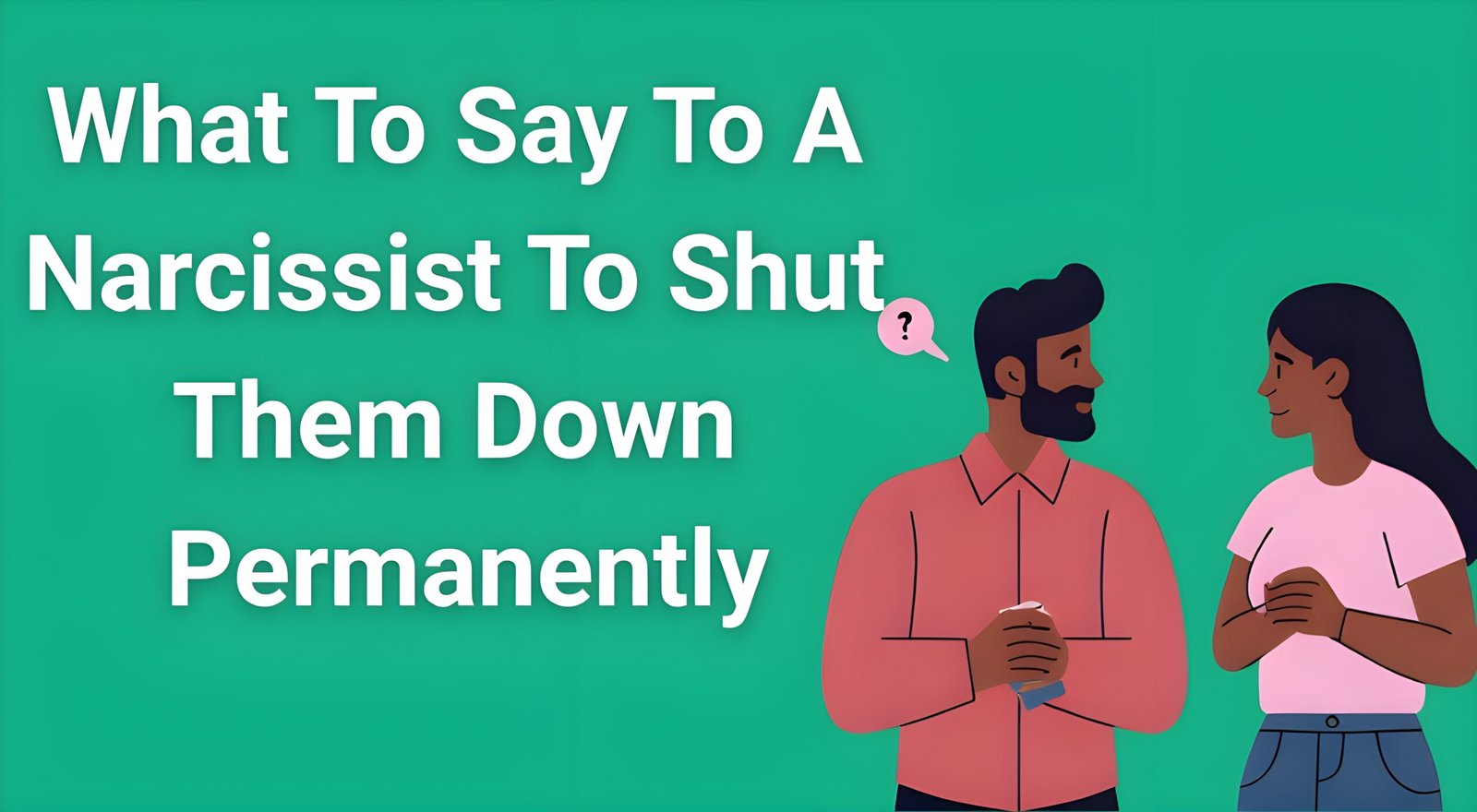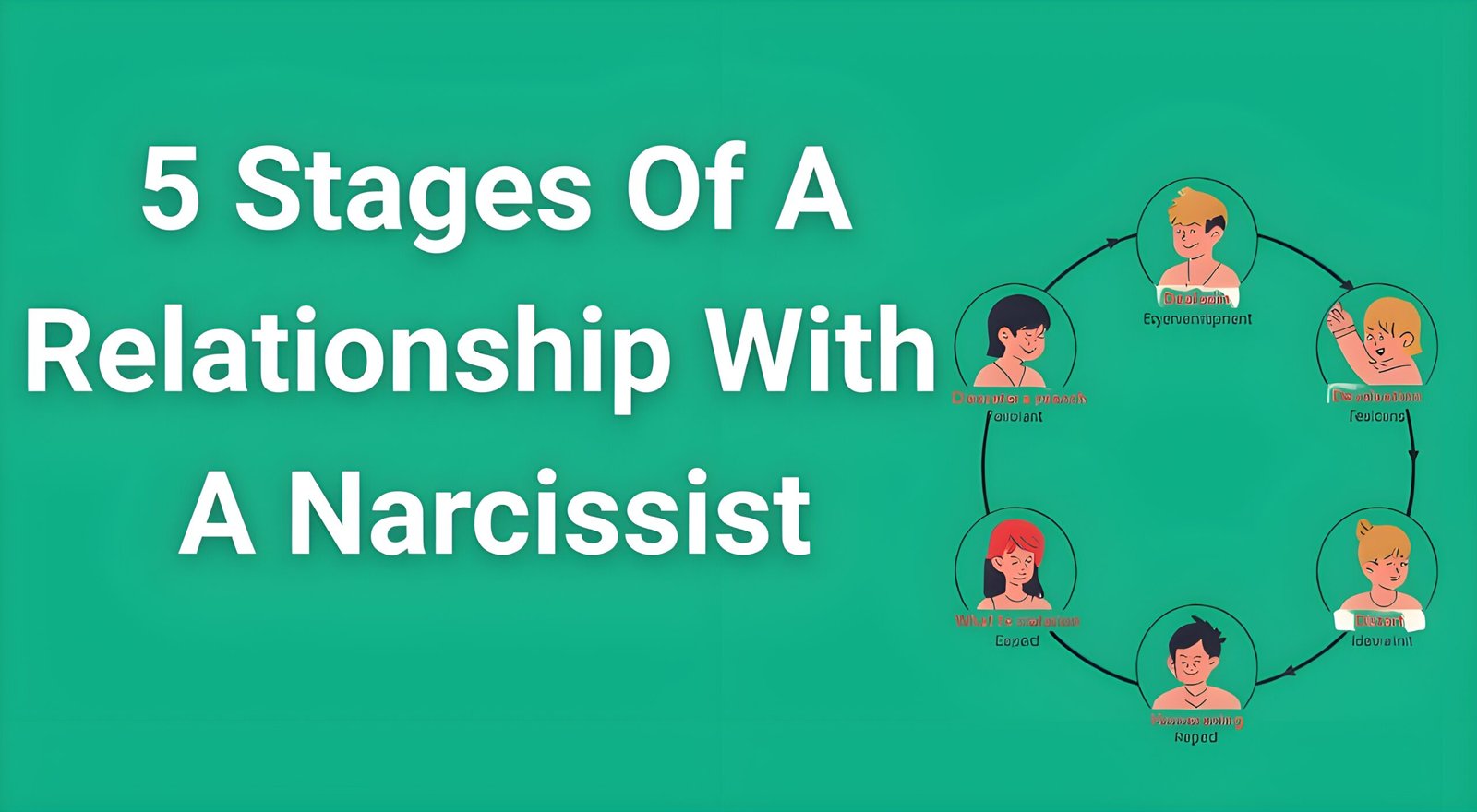If you’re desperately searching for what to say to a narcissist to shut them down permanently, you’re not alone. Millions of people struggle with narcissistic individuals who seem impossible to stop, whether it’s a toxic partner, manipulative parent, or controlling coworker. The good news? There are specific phrases and strategies that can permanently disrupt their manipulation tactics and give you back your power.
- Why “Just Ignore Them” and Other Common Advice Fails
- The Psychology Behind Permanent Narcissist Shutdown
- 21 Key Phrases to Shut Down a Narcissist Permanently
- Implementation Strategy: Making These Phrases Work
- When Narcissists Escalate: Advanced Protection Strategies
- Building Your Support System
- Red Flags: When Professional Help is Essential
- Long-term Recovery and Prevention
- Creating Your Action Plan
- Frequently Asked Questions
- Conclusion: Your Path to Permanent Freedom
Understanding how to shut down a narcissist permanently requires more than just knowing what words to say—it demands a complete shift in how you approach these toxic interactions. Unlike temporary de-escalation techniques that only provide momentary relief, permanent shutdown strategies cut off their psychological supply at the source.
Why “Just Ignore Them” and Other Common Advice Fails
Before diving into what actually works, let’s address why most advice about dealing with narcissists fails miserably. You’ve probably heard suggestions like “just ignore them,” “don’t take it personally,” or “kill them with kindness.” These approaches fail because they fundamentally misunderstand narcissistic psychology.
Narcissists operate on what experts call “narcissistic supply”—emotional reactions, attention, and control over others that feed their fragile self-esteem. Traditional conflict resolution assumes both parties want a healthy outcome, but narcissists aren’t interested in resolution. They’re interested in dominance, control, and extracting emotional energy from you.
When you try to reason with them, justify your position, or explain your feelings, you’re actually giving them exactly what they crave: your emotional engagement. This is why conversations with narcissists feel like going in circles—because they’re not designed to reach conclusions, they’re designed to extract supply.
The Psychology Behind Permanent Narcissist Shutdown
To permanently shut down a narcissist, you need to understand what they fear most: being irrelevant, losing control, and facing their own inadequacy. Effective shutdown phrases accomplish three critical objectives:
1. Supply Cutoff: They eliminate the emotional reactions narcissists feed on 2. Control Disruption: They prevent the narcissist from steering conversations into manipulation territory
3. Boundary Reinforcement: They establish your autonomy without triggering narcissistic rage
The key difference between temporary de-escalation and permanent shutdown lies in consistency and psychological positioning. Permanent shutdown requires you to become emotionally unavailable as a source of supply while maintaining your dignity and safety.
Research in narcissistic personality disorder shows that narcissists lose interest in targets who consistently refuse to engage in their psychological games. When someone becomes predictably unrewarding—offering neither positive attention nor negative emotional reactions—narcissists typically move on to easier sources of supply.
21 Key Phrases to Shut Down a Narcissist Permanently
Phase 1: Establishing Emotional Boundaries (Phrases 1-7)
These phrases create immediate emotional distance while refusing to engage in their manipulation tactics:
1. “I understand that’s your opinion.” This phrase acknowledges what they’ve said without agreeing, arguing, or providing emotional fuel. It’s infuriatingly neutral from their perspective because there’s nothing to attack or manipulate.
2. “I’m not willing to discuss this further.”
Direct boundary setting that removes you from their control attempts. The beauty lies in its finality—there’s no room for negotiation or manipulation.
3. “That’s interesting.” A perfectly neutral response that provides zero emotional engagement. It neither validates nor challenges them, leaving them with nothing to work with psychologically.
4. “I hear what you’re saying.” This acknowledges their words without accepting responsibility for their emotions or reactions. It’s a factual statement that can’t be twisted into an argument.
5. “I need some time to think about that.” Creates space between you and their demand for immediate emotional response. This phrase frustrates narcissists because it prevents them from controlling the conversation’s pace and emotional temperature.
6. “We’ll have to agree to disagree.” Ends circular arguments by refusing to continue pursuing their version of “resolution,” which is typically your submission to their perspective.
7. “I don’t see it that way.” Establishes your separate reality without attacking theirs. This phrase is particularly powerful because it asserts your right to your own perspective without providing ammunition for counterattack.
Phase 2: Rejecting Manipulation Tactics (Phrases 8-14)
These phrases specifically address common narcissistic manipulation strategies:
8. “That doesn’t work for me.” Simple rejection of their proposals, demands, or expectations without lengthy explanations they can pick apart and argue with.
9. “I won’t be spoken to that way.” Addresses tone and delivery, setting standards for how you’ll accept communication. This phrase often catches narcissists off-guard because most people focus on content rather than delivery.
10. “I’m not responsible for your feelings about this.” Refuses to accept blame for their emotional reactions, a crucial boundary that prevents them from making you responsible for managing their emotions.
11. “That’s not accurate.” Counters their attempts to rewrite history or gaslight you without getting drawn into lengthy explanations or justifications of what actually happened.
12. “I don’t accept that characterization of me.” Rejects their attempts to define you, your motivations, or your character. This phrase maintains your autonomy over your own identity.
13. “You’re entitled to feel however you want to feel.” Acknowledges their right to their emotions while refusing to take responsibility for causing or fixing those emotions.
14. “I’m going to step away from this conversation.” Physical and emotional removal from toxic interactions. This phrase works because it’s an action statement, not a threat or negotiation.
Phase 3: Advanced Shutdown Techniques (Phrases 15-21)
These advanced phrases are for persistent narcissists who don’t respond to standard boundary setting:
15. “This conversation isn’t productive.” Evaluates the interaction objectively and finds it lacking, giving you permission to disengage without appearing rude or unreasonable.
16. “I’ve made my position clear.” States that communication has occurred and further discussion is unnecessary. This prevents them from claiming you haven’t explained yourself.
17. “Let’s focus on facts, not interpretations.” Redirects away from their emotional manipulations and personal attacks toward objective reality—something narcissists struggle with.
18. “I prefer to handle this in writing.”
Removes the immediacy and emotional intensity they rely on for manipulation while creating documentation of interactions.
19. “That’s between you and your therapist.” Deflects their attempts to make you their emotional processor or personal advisor, redirecting them to appropriate professional help.
20. “I notice you keep trying to change the subject.” Calls out their deflection tactics directly, making it harder for them to avoid accountability or redirect conversations to attack you.
21. “I’m done with this topic.” The ultimate shutdown phrase that declares the conversation finished from your perspective, regardless of their desire to continue.
Implementation Strategy: Making These Phrases Work
Knowing the phrases is only half the battle. Implementation requires strategic thinking and emotional preparation. Here’s how to make these phrases permanently effective:
The Gray Rock Method Enhancement
Combine these phrases with the gray rock technique—becoming so boring and unresponsive that you’re no longer an interesting target for manipulation. The phrases provide structure for gray rock implementation, giving you specific words rather than hoping you’ll naturally become uninteresting.
Consistency is Everything
Narcissists will test your boundaries repeatedly, especially when you first start using these techniques. They may escalate their behavior temporarily (called an “extinction burst” in psychology) before giving up. Consistent use of these phrases, even when they increase their pressure, is crucial for permanent shutdown.
Emotional Preparation Techniques
Before interactions with narcissists, mentally rehearse these phrases until they feel natural. Practice delivering them in a calm, neutral tone. Remember: your goal isn’t to hurt them or prove points—it’s to protect your emotional energy and maintain your boundaries.
Documentation Strategy
When possible, have these conversations in writing or document them afterward. Narcissists often claim conversations never happened or that you said things you didn’t say. Written records protect you from gaslighting attempts.
When Narcissists Escalate: Advanced Protection Strategies
Some narcissists respond to boundary setting with increased aggression, manipulation, or even threats. This escalation is often a sign that your boundaries are working—they’re losing control and becoming desperate to regain it.
If you’re in a situation where you can’t immediately remove yourself from a narcissistic relationship (such as co-parenting, workplace situations, or caring for elderly parents), you need additional strategies beyond phrases. Professional guidance becomes essential for navigating these complex dynamics while protecting your mental health.
Understanding the specific type of narcissist you’re dealing with—covert, overt, malignant, or communal—can help you predict their likely responses to boundary setting and prepare accordingly. Each type has different triggers, manipulation styles, and pressure points that affect how they respond to shutdown attempts.
Sometimes, the process of breaking free from narcissistic control involves recognizing trauma bonds that make leaving feel impossible, even when you logically know the relationship is harmful. These biochemical attachments can make your brain interpret separation as a threat to survival, creating overwhelming anxiety when you try to implement boundaries.
Building Your Support System
Permanently shutting down a narcissist often requires more support than friends and family can provide, especially if they don’t understand narcissistic abuse dynamics. Professional support, whether through individual therapy, support groups, or specialized programs, can provide the validation and strategies needed for long-term success.
Many survivors find that connecting with others who’ve experienced similar relationships helps them maintain their resolve when narcissists try to hoover them back or when self-doubt creeps in. There’s something powerful about hearing your experiences validated by people who truly understand what you’ve been through.
Red Flags: When Professional Help is Essential
While these phrases and strategies are effective for many situations, some circumstances require immediate professional intervention:
- Threats of violence or self-harm
- Financial abuse or control
- Stalking or harassment behavior
- Involvement of children in manipulation tactics
- Substance abuse combined with narcissistic behavior
- Your own mental health deteriorating despite boundary attempts
Long-term Recovery and Prevention
Successfully shutting down a narcissist permanently often reveals patterns in your own behavior that made you vulnerable to their manipulation in the first place. This isn’t victim-blaming—it’s empowerment. Understanding why you were targeted and how you can strengthen your boundaries prevents future narcissistic relationships.
Many people discover they have codependent tendencies, people-pleasing patterns, or unhealed childhood trauma that narcissists exploited. Addressing these underlying vulnerabilities is crucial for long-term protection and healthier relationships.
The recovery process involves rebuilding your sense of self, learning to trust your perceptions again, and developing healthy relationship skills. This work takes time, but it’s essential for preventing future narcissistic entanglements.
Creating Your Action Plan
Start with the Phase 1 phrases if you’re new to boundary setting with narcissists. Master 2-3 phrases before moving to more advanced techniques. Practice them until they feel natural, and remember that your delivery matters as much as the words themselves.
Consider your specific situation: Are you dealing with a partner, parent, coworker, or ex? Each relationship type may require slightly different approaches, though the core principles remain the same.
Set realistic expectations for the process. Permanent shutdown doesn’t mean they’ll never try to contact you again—it means you’ll consistently refuse to engage with their manipulation tactics until they lose interest and move on to easier targets.
Frequently Asked Questions
Q: How long does it take for these phrases to permanently shut down a narcissist?
A: It varies by individual, but most narcissists lose interest within 2-6 weeks of consistent boundary enforcement. The key is absolute consistency—any emotional engagement resets their interest.
Q: What if the narcissist is a family member I can’t avoid completely?
A: Use structured contact with these phrases. Limit interactions to necessary topics, use written communication when possible, and never engage in personal discussions about feelings or relationships.
Q: Will using these phrases make the narcissist angry?
A: Initially, yes. This anger (narcissistic rage) often indicates your boundaries are working. Stay safe, document threats, and don’t let their anger manipulate you into backing down.
Q: Can these phrases work with covert narcissists? A: Absolutely. Covert narcissists often respond even better to these techniques because they rely heavily on emotional manipulation rather than overt aggression.
Q: What if I feel guilty using these phrases?
A: Guilt is normal when setting boundaries with manipulative people, especially if they’ve trained you to prioritize their comfort over your wellbeing. The guilt typically decreases as you experience the peace that comes from emotional freedom.
Q: Should I explain why I’m using these phrases?
A: No. Explanations provide ammunition for arguments and manipulation. The phrases work specifically because they don’t provide emotional engagement or justification opportunities.
Conclusion: Your Path to Permanent Freedom
Learning what to say to a narcissist to shut them down permanently is ultimately about reclaiming your power, protecting your mental health, and refusing to participate in toxic relationship dynamics. These 21 key phrases provide the tools, but your commitment to using them consistently provides the results.
Remember that permanently shutting down a narcissist isn’t about punishment or revenge—it’s about protection and peace. When you stop feeding their need for control and emotional chaos, you create space for healing, growth, and healthier relationships.
The journey from victim to survivor to thriver involves not just knowing what to say, but developing the internal strength to maintain your boundaries even under pressure. Every time you use these phrases instead of engaging in their manipulation, you’re choosing your wellbeing over their demands for supply.
Your life, energy, and peace of mind are worth protecting. These phrases are your shield, but your commitment to your own wellbeing is your strength. Use them consistently, support yourself through the process, and trust that permanent freedom from narcissistic manipulation is not just possible—it’s your right.






